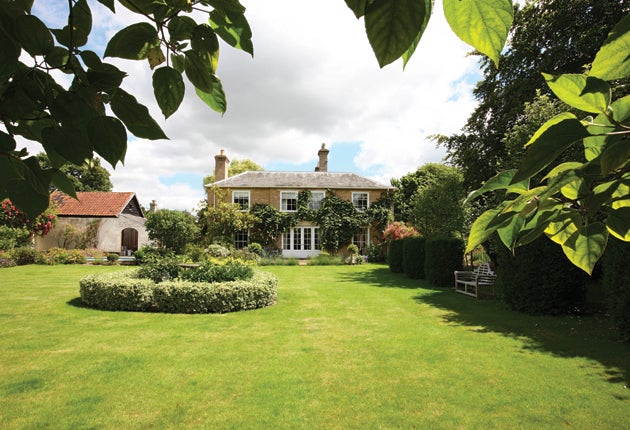THE 21ST CENTURY: THE HOME

Your support helps us to tell the story
From reproductive rights to climate change to Big Tech, The Independent is on the ground when the story is developing. Whether it's investigating the financials of Elon Musk's pro-Trump PAC or producing our latest documentary, 'The A Word', which shines a light on the American women fighting for reproductive rights, we know how important it is to parse out the facts from the messaging.
At such a critical moment in US history, we need reporters on the ground. Your donation allows us to keep sending journalists to speak to both sides of the story.
The Independent is trusted by Americans across the entire political spectrum. And unlike many other quality news outlets, we choose not to lock Americans out of our reporting and analysis with paywalls. We believe quality journalism should be available to everyone, paid for by those who can afford it.
Your support makes all the difference.THE HOME
AFTER two decades of retro architecture and interiors, the 21st century will look the way it should - modern. With so many people downshifting, the market will now demand clean, simple, high quality spaces. Many European cities will see a revival in vertical architecture, with tower blocks becoming not only desirable places to live within the urban core but also sensible in real estate terms.
According to Sir Terence Conran, "space will be the biggest luxury of the 21st century" and while most people will be living in cramped conditions, the illusion of space will start to become a big feature in home design. The kitchen and the living and dining rooms will all merge into one large space, bathrooms will become more like mini-spas and bedrooms will become sound and lightproof retreats.
With rising home prices and rents, the unlikely family will evolve in order to meet the economic and emotional costs of a post-corporate world. Loose family units of three to six people will share communal office, fitness and entertaining space, while maintaining private bedrooms and bathrooms. With some working outside the home and others managing micro- businesses from a well equipped home office, the more affluent of these new unlikely families will employ domestic staff to cook, clean and look after the children.
With so much invested in office hardware and software, security will become a major issue in most households. Private security firms, remote surveillance programmes and bunker style architecture will all play an important role in home security in the coming decade.
For the nomads who will spend the bulk of their time circumnavigating the globe, there will be an international network of hometels that will serve as their homebase no matter where they are. Instead of owning or renting a house where they would only spend two months of the year, high frequency travellers would pay a yearly membership fee to a hometel group who would store the belongings and keep a record of their members' favourite familiar items which would be put into their room whenever they return to their home town. While staying in other hometels, a global database would display what flowers, linens, bath products, beverages, scents and software members would like in their room. Incorporating a standard level architecture and interior design world-wide, hometels will be the last word in seamless travel.
Join our commenting forum
Join thought-provoking conversations, follow other Independent readers and see their replies
Comments